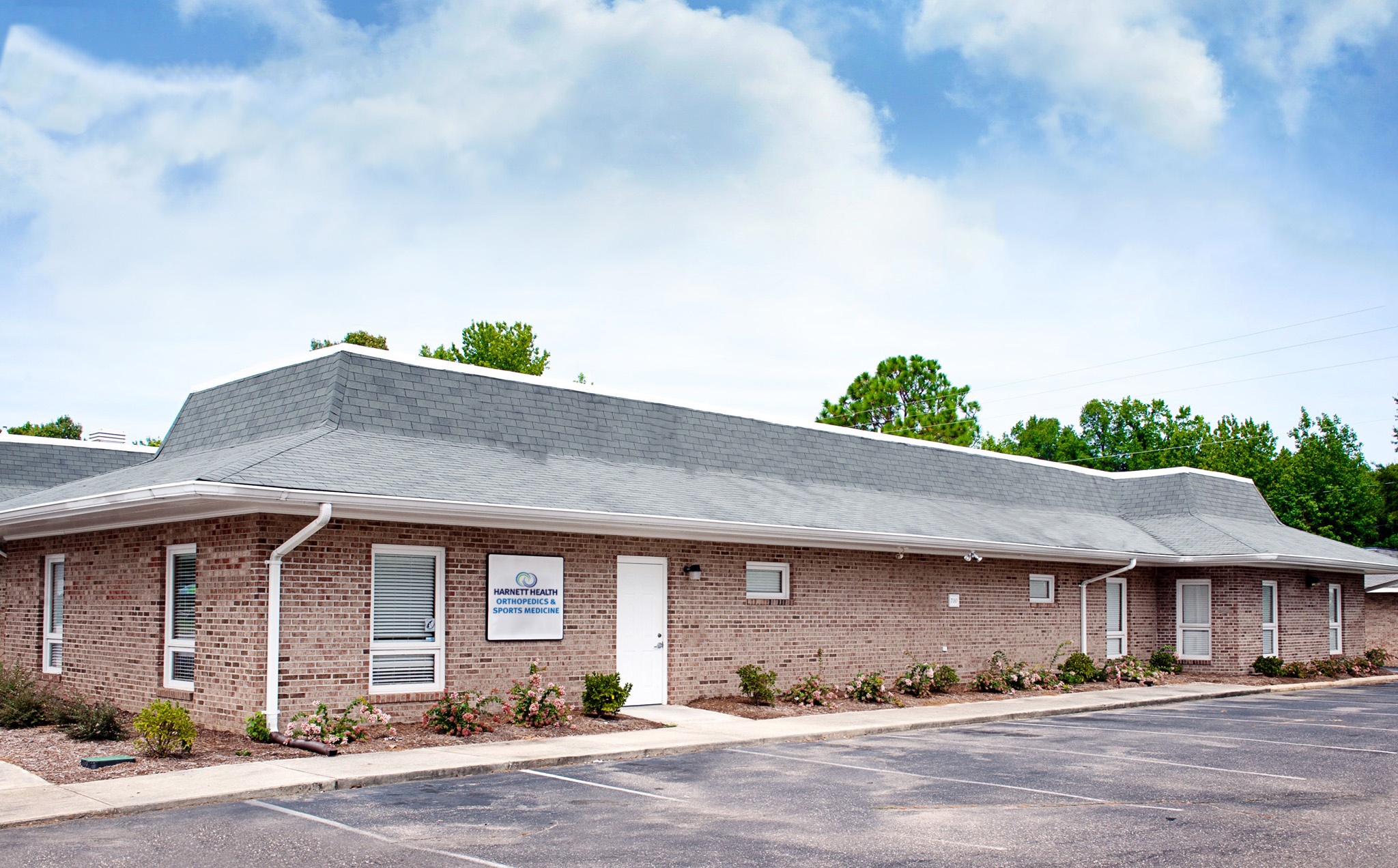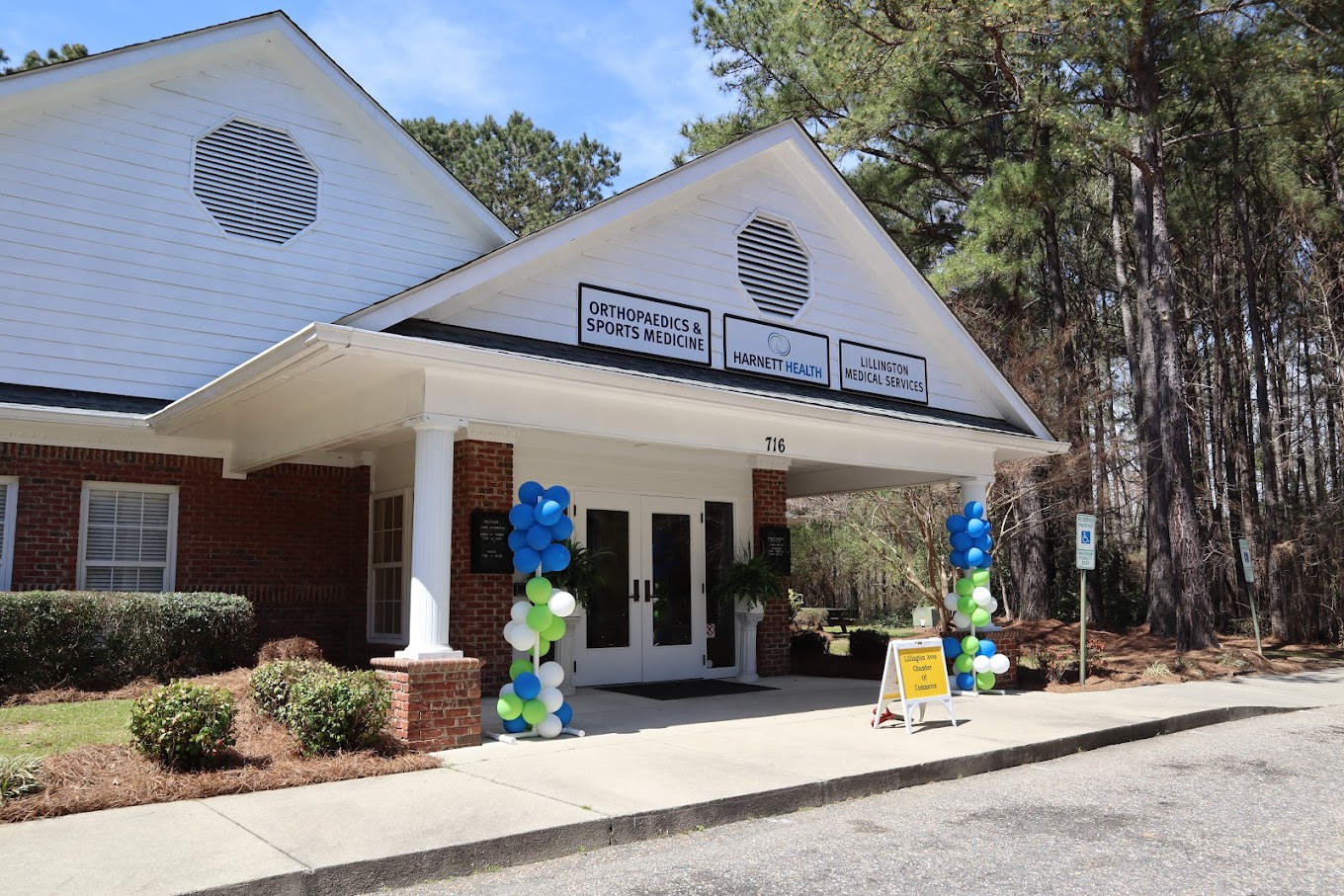Quality Care with Cutting-edge Technology
Harnett Health Orthopaedics & Sports Medicine welcomes Anthony Parker, DO and is now offering a highly advanced robotic-arm Smartrobotics system for assistance in joint replacement surgeries. Harnett Health is the first in the area to offer Mako SmartRobotics™. This advancement in joint replacement surgery transforms the way total knee, partial knee and total hip replacements are performed, by helping surgeons know more and cut less.
Mako SmartRobotics™ combines three key components, 3D CT-based planning, AccuStop™ haptic technology and insightful data analytics, into one platform that has shown better outcomes for total knee, total hip and partial knee patients. With Mako SmartRobotics™, our surgeons will know more about patients than ever before, and are able to cut less. For some patients, this can mean less soft tissue damage; for others, greater bone preservation. Mako’s 3D CT helps create a personalized plan based on each patient’s unique anatomy before entering the operating room. During surgery, the surgeon validates that plan and makes any necessary adjustments while guiding the robotic arm to execute that plan. It’s exciting to be able to offer this transformative technology across the joint replacement service line to perform total knee, total hip and partial knee replacements.
Speak to one of our doctors today to decide if joint replacement surgery is appropriate for you. Individual results vary and not all patients will return to the same activity level. The lifetime of any joint replacement is limited and depends on several factors like patient weight and activity level. Your doctor will counsel you about strategies to potentially prolong the lifetime of any treatment, including avoiding high- impact activities, such as running, as well as maintaining a healthy weight. It is important to closely follow your doctor’s instructions regarding post-surgery activity, treatment and follow-up care. Ask your doctor if a joint replacement is right for you.
Expanding Orthopaedic Services
Harnett Health Orthopaedics & Sports Medicine is proud to offer game changing orthopaedic care to Harnett County and the surrounding communities.
Services Provided
- Orthopaedic Surgery
- Joint Replacement
- Joint Pain Relief
- Rotator cuff tear
- Shoulder instability
- Shoulder Replacement
- Hip and Knee replacement revision
- ACL Tears/ Meniscus Tears
- Arthroscopic Procedures
- Musculoskeletal Ultrasound and Ultrasound Guided Injections, Hydro-dissection and other procedures
- Steroid and Gel injections
- Fracture Care
- Sports injuries
- Overuse injuries
- Osteoarthritis
- Injections for joint and soft tissue conditions
Orthopaedics & Sports Medicine of Dunn

Hours of Operation
Monday – Thursday
7:30 a.m. – 4:30 p.m.
Friday
7:30 a.m. – Noon
Orthopaedics & Sports Medicine of Lillington

Hours of Operation
Monday – Thursday
7:30 a.m. – 4:30 p.m.
Friday
7:30 a.m. – Noon


